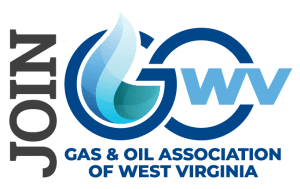Your Weekly Dose of “Common Sense“ Energy News Presented by:The Empowerment Alliance September 10th, 2021 Natural gas has grown to power over 30 percent of the U.S.’s energy needs, and that has resulted in: American families saving thousands…
The post Common Sense Energy: The City That Never Drains 
Your Weekly Dose of “Common Sense“ Energy News
September 10th, 2021
Natural gas has grown to power over 30 percent of the U.S.’s energy needs, and that has resulted in: American families saving thousands of dollars on energy costs, millions of jobs created, cleaner air from lowered emissions and lives saved with increased access to affordable home heating in the winter.
But, according to Bloomberg, “The coming winter may give the world a painful lesson in just how pervasive and vital gas has become for the economy. Unaffordable prices could crimp households’ spending and erode their wages through inflation, giving central bankers some difficult policy choices. Worse still, actual supply shortages could idle swathes of industry, or even trigger blackouts in developing countries, potentially causing social unrest.”
The Bottom Line: Natural gas is the common-sense fuel for cleaner, reliable, affordable energy. That’s why policies that would limit supplies and drive up costs are…nonsense.

And speaking of policies that would drive up costs, a methane tax is the newest nonsensical idea to pop up in the ongoing budget reconciliation process in Congress. One proposal would have the EPA identify companies that “contributed at least 0.05 percent of total carbon dioxide and methane gas emissions from 2000-2019 and tax them accordingly.” Never mind that there’s already Congressionally-mandated methane regulations forthcoming from the EPA.
As the industry groups pushing back on this proposal rightly point out, this will inevitably lead to higher energy prices for the everyday American families and small businesses trying to get back on track. And, the billions in revenue from the proposal wouldn’t even be invested in emissions reductions but appear to be pegged to offset the $3.5 trillion budget proposal weaving through Congress. So, for those keeping track, that’s a tax that will drive up your energy costs to pay for proposals…that will drive up your energy costs.
The Bottom Line: Just like a carbon tax, a methane tax would miss the intended target and hit the American consumer instead. At a time when Americans are struggling to afford groceries and gasoline, the last thing they need is another tax on their energy.
What exactly happened when the remnants of Hurricane Ida hit New York—leaving the region with devastating floods and a death toll on par with New Orleans where the storm made landfall? Congresswoman Alexandria Ocasio-Cortez will tell you it’s the climate change. NYC Mayor Bill de Blasio will tell you the weather people didn’t warn him well enough. But, really, leaders in New York didn’t prepare well enough, didn’t learn from the past and didn’t fix the city’s infrastructure.
As Francisco Moya, a city councilman from Queens, put it: “It is unacceptable that we did not prepare for Ida with the same rigor that we did for Henri, and that is a failure on the city’s part.” Weather is unpredictable. Nature has a mind of its own. These storms are a perfect example of hoping for the best and preparing for the worst. And, New York didn’t do that.
The Bottom Line: NYC infrastructure was woefully unprepared to handle heavy rain and it showed during Ida. But the climate change scape goat isn’t going to make the next storm any better. Officials must take responsibility followed by immediate action.
Americans are paying 23.8% more to satisfy their energy needs today than they were one year ago, according to Bureau of Labor Statistics. This includes a 7% and 19% increase in electricity and utility gas costs, respectively.

FERC Technical Conference: On Tuesday, September 14, the Federal Energy Regulatory Commission will have a technical conference to “discuss potential energy and ancillary services market reforms, such as market reforms to increase operational flexibility.”
Reconciliation Moves to Floor Action: Wednesday, September 15, is the tentative deadline set by both chambers to move their reconciliation packages to the floor for action. House committees are still working on markups, and Senate Democrats claim they are “full speed ahead” despite some bumps with Senate Energy and Natural Resources Chair Joe Manchin opposing “as much as $2 trillion in spending under consideration.”
Public Comment on Proposed Offshore Wind Energy Project: On Thursday, September 16, the Interior Department’s Bureau of Ocean Energy Management will conduct the first of three “virtual scoping meetings where stakeholders and other members of the public can learn more about the project before commenting for the record” on proposed project to build 122 wind turbines in the North Atlantic.

Tomorrow marks 20 years since the tragic events of September 11th, 2001.
We’d like to pay tribute to the brave Americans who lost their lives, the first responders who risked everything, and the friends and family of every victim. We will never forget the sacrifices that were made.
The post Common Sense Energy: The City That Never Drains 

